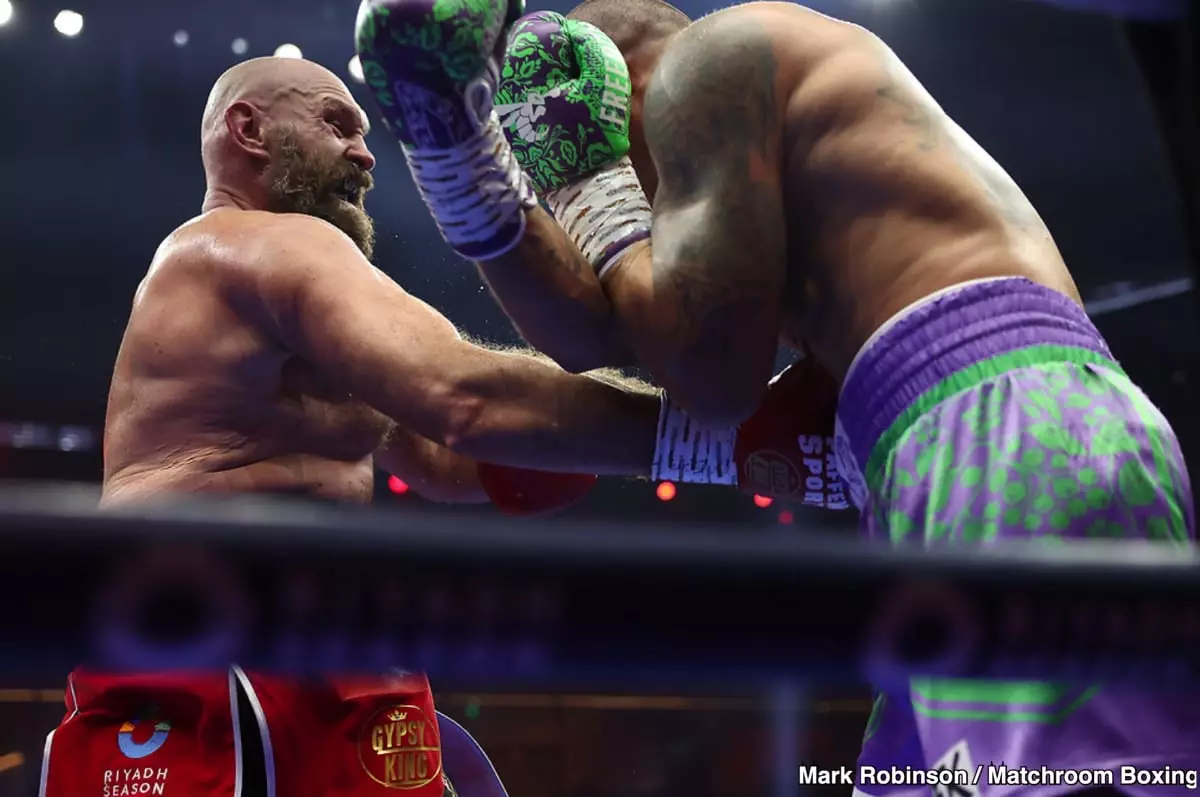In the aftermath of the much-anticipated rematch between Oleksandr Usyk and Tyson Fury, broadcaster and promoter Turki Alalshikh has shaken the boxing community by proclaiming Usyk the clear victor. His assertion of Usyk winning by four rounds in their bout at the Kingdom Arena in Riyadh not only highlights a significant perspective shift in evaluating the fight, but also underscores the common tension between athletes, their teams, and the interpretations of their performances. This honesty from Alalshikh stands in stark contrast to Fury’s insistence that he deserved the win, an attitude perceived by many as the hallmark of a sore loser.
The bout ended in a unanimous decision with all judges scoring it 116-112 in Usyk’s favor, reinforcing the legitimacy of Alalshikh’s viewpoint. Fury’s performance appeared lackluster for a fighter of his caliber, raising questions about his preparation and fitness levels. With a professional record now sitting at 34-2-1, his physical condition—particularly his visibly flabby midsection—was troubling. Tyson indicated he had been in training camp for three months, yet he resembled a fighter who hadn’t seen a rigorous training schedule, leading to speculation about his commitment and focus during that time.
Moreover, Fury’s comments during the post-fight press conference, where he felt impervious to Usyk’s attacks, seem hazardous. The reality of the fight tells a different tale; several moments where Fury appeared stunned should not be overlooked. His eyes rolling back after a significant left hand delivered by Usyk suggests that he was indeed affected, contradicting his assertion of not having sustained any real damage.
Fury’s claim of ignoring communication with his family during the training period raises further questions about his mental state. The isolation and pressure one experiences in a training camp can be intense, and choosing to cut off familial support may have backfired. While focus is crucial, balance in life—especially mental and emotional support—plays an essential role in an athlete’s performance. If Fury’s training camp was marred by such drastic choices, it further complicates the narrative of his defeat.
Alalshikh’s enthusiasm for future bouts is noteworthy as well. He expressed excitement for Usyk’s potential match against IBF heavyweight champion Daniel Dubois and a possible fight between Fury and Anthony Joshua. These potential matchups promise to bring renewed vigor to the heavyweight landscape, regardless of the outcome of their respective fights.
The rematch between Usyk and Fury serves as a microcosm of the larger narrative within boxing where perception meets reality. Alalshikh’s willingness to challenge the status quo highlights a demand for accountability in the sport, wary of how personal biases can skew public opinion. As the dust settles on this contentious clash, one must reflect on the importance of transparency and authenticity in athletes’ engagements, both inside and outside the ring. The expectation now falls on the fighters to rise to the occasion of future bouts, regardless of the controversy that may emerge from their past performances.


Leave a Reply